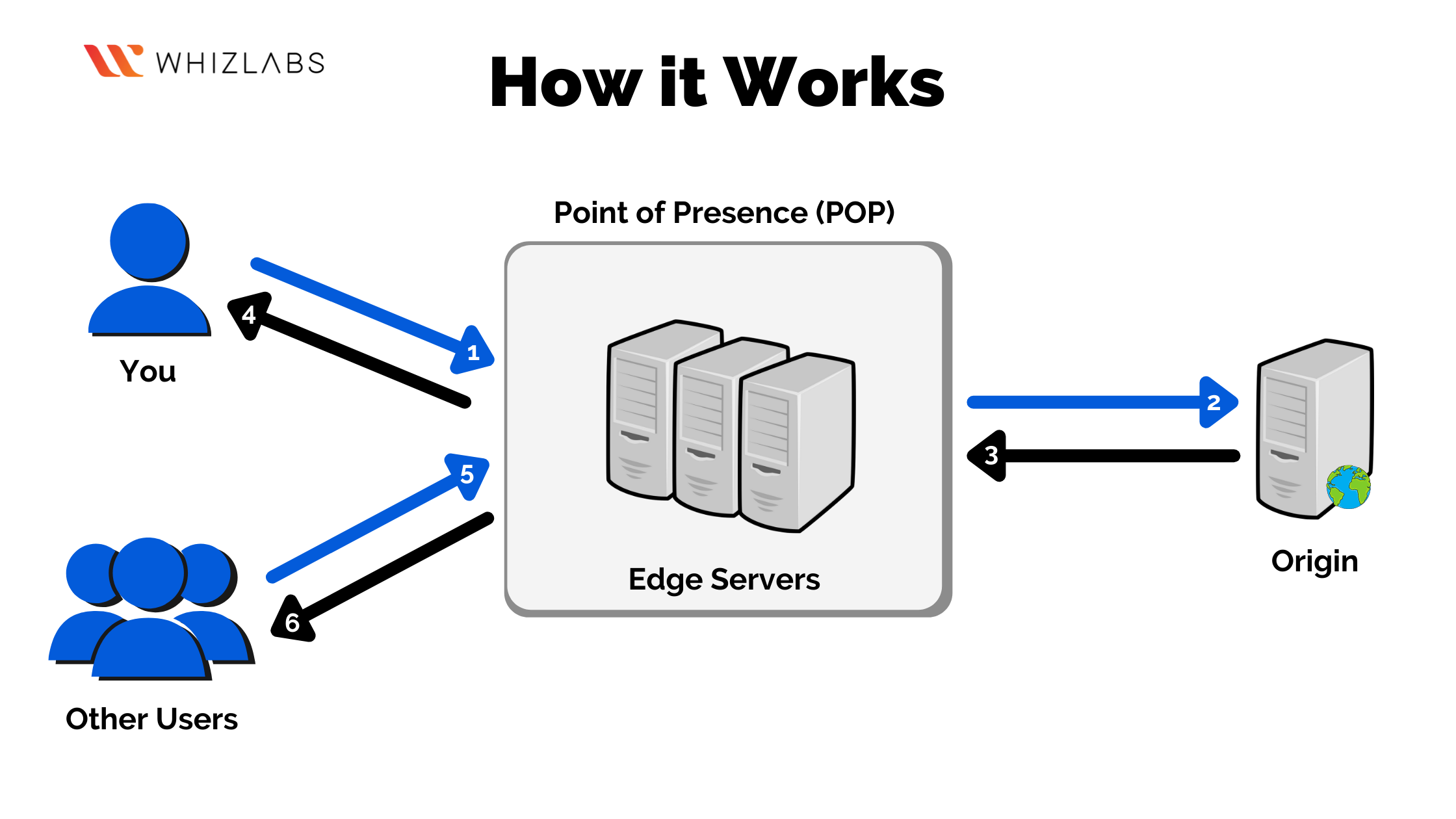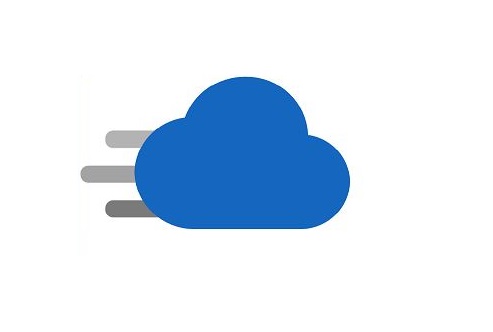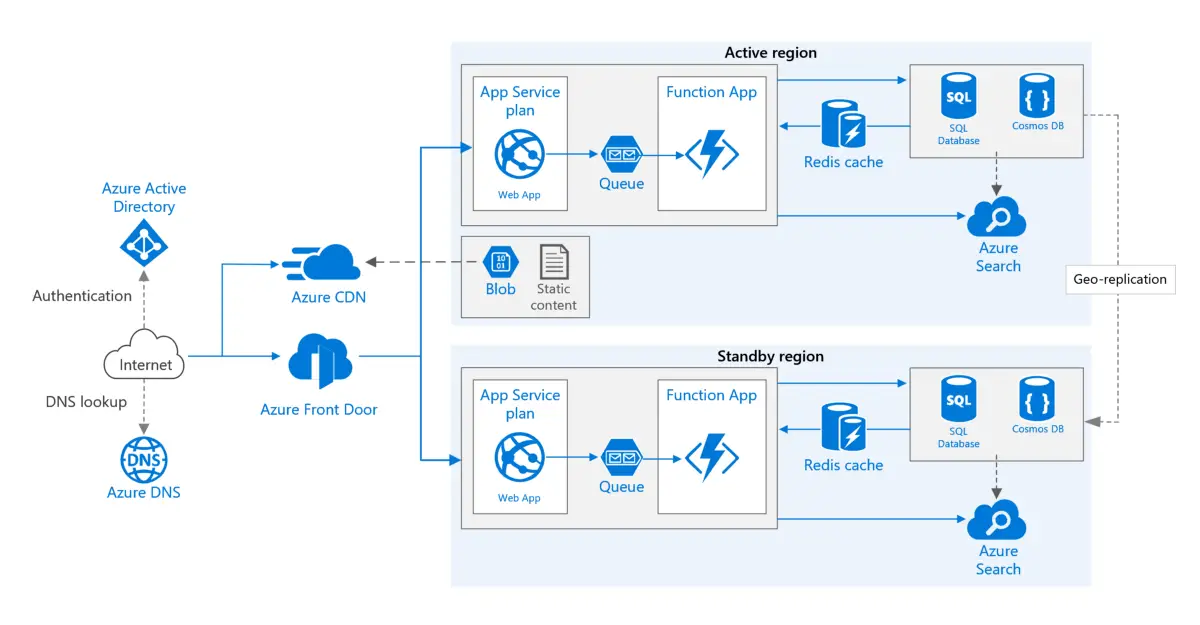Azure CDN: Unleashing Performance for Microsoft’s Cloud Empire

Introduction:

Azure Content Delivery Network (CDN) plays a pivotal role in the Microsoft cloud ecosystem, providing lightning-fast and reliable content delivery to global audiences. As the internet landscape demands seamless user experiences and efficient resource utilization, Azure CDN has emerged as a critical enabler for businesses of all sizes.

Key Benefits:
- Reduced Latency and Improved Page Load Times: Azure CDN distributes content across multiple servers located strategically around the world. This allows users to access content from the closest server, significantly reducing latency and improving page load times.
- Higher Bandwidth Efficiency: By caching static content and optimizing delivery, Azure CDN reduces bandwidth consumption by up to 90%. This results in lower costs for businesses and faster content delivery for end users.
- Improved Security: Azure CDN offers a range of security features, including DDoS protection, SSL/TLS encryption, and IP whitelisting. These measures ensure the integrity and security of content while protecting against malicious attacks.
- Global Reach: Azure CDN has a global network of points of presence (POPs), enabling content delivery to users in all regions. This broad reach ensures optimal performance regardless of user location.
Use Cases:
Azure CDN is ideally suited for a wide range of use cases, including:
- Website Acceleration: Improve the performance of websites, blogs, and e-commerce platforms.
- Video Streaming: Deliver high-quality video content to users with minimal buffering and interruptions.
- Software Updates: Distribute software updates and patches efficiently and securely.
- File Sharing: Share large files and documents with recipients around the world with fast and reliable delivery.
Integration with Microsoft Services:
Azure CDN seamlessly integrates with Microsoft services, including:
- Azure Storage: Cache and deliver static content stored in Azure Storage for optimal performance.
- Azure Media Services: Enable efficient and secure delivery of video content through Azure CDN.
- Azure App Service: Improve the performance of web applications hosted on Azure App Service.
Pricing and Availability:
Azure CDN offers a pay-as-you-go pricing model that allows businesses to scale their usage based on actual consumption. Pricing varies depending on factors such as region, bandwidth usage, and security features required. Azure CDN is available in all Azure regions worldwide.
Conclusion:
Azure CDN is an essential component of the Microsoft cloud ecosystem, providing businesses with a suite of features and capabilities to enhance the performance and reliability of their content delivery. By reducing latency, improving bandwidth efficiency, and offering global reach, Azure CDN enables companies to deliver exceptional user experiences and drive business growth. As the demand for fast and reliable content delivery continues to grow, Azure CDN will remain a critical tool for businesses looking to succeed in the digital age.## Azure CDN: Boosting Performance for Microsoft’s Cloud Ecosystem
Executive Summary
Azure Content Delivery Network (CDN) is a global network of servers that deliver content to users with high speed and reliability. By caching content on edge servers closer to users, Azure CDN reduces latency and improves the overall performance of websites and applications. This article explores the key benefits, features, and use cases of Azure CDN, highlighting its role in enhancing the performance of Microsoft’s cloud ecosystem.
Introduction
In the modern digital world, delivering content quickly and reliably is crucial for businesses to succeed. Azure CDN is a powerful solution that addresses this need by providing a globally distributed network of servers that cache and deliver content to users worldwide with optimal speed and performance. By leveraging Azure CDN, businesses can enhance the user experience, reduce bandwidth costs, and improve the overall performance of their applications and websites.
FAQs
1. What is Azure CDN?
Azure CDN is a network of edge servers that cache and deliver content closer to users, ensuring fast and reliable access to websites, videos, and other digital assets.
2. What are the benefits of using Azure CDN?
Azure CDN offers a range of benefits, including improved performance, reduced latency, increased availability, enhanced security, and cost optimization.
3. How much does Azure CDN cost?
Azure CDN pricing is based on several factors, including data transfer, number of requests, and storage usage. Businesses can choose from various pricing tiers to suit their specific needs and budget.
Top 5 Subtopics
1. Performance Optimization
Azure CDN optimizes performance by caching content on edge servers closer to users. This reduces latency, improves page load times, and enhances the overall user experience.
- Caching mechanisms: Azure CDN uses various caching techniques, such as browser caching and reverse proxies, to store content locally and reduce server load.
- Global network: Azure CDN’s extensive global network ensures that content is delivered from the nearest edge server, minimizing latency and improving performance.
- Dynamic content acceleration: Azure CDN supports dynamic content acceleration, allowing businesses to deliver real-time content, such as live video streams and interactive applications, with high speed and reliability.
- Load balancing: Azure CDN distributes traffic across multiple servers, ensuring optimal performance and preventing outages during high traffic periods.
2. Security Enhancements
Azure CDN provides a range of security features to protect content and user data.
- SSL/TLS encryption: Azure CDN encrypts content in transit using Secure Socket Layer (SSL) or Transport Layer Security (TLS) protocols, ensuring secure delivery of data.
- DDoS protection: Azure CDN offers built-in protection against Distributed Denial of Service (DDoS) attacks, safeguarding websites and applications from malicious traffic.
- IP restrictions: Businesses can restrict access to content based on IP address, preventing unauthorized users from accessing sensitive data.
- Custom domain support: Azure CDN allows businesses to use their own custom domain names, providing a consistent and branded user experience.
3. Scalability and Availability
Azure CDN is highly scalable and offers global availability to meet the demands of growing businesses.
- Automatic scaling: Azure CDN automatically scales its capacity based on traffic demand, ensuring optimal performance even during traffic spikes.
- Global presence: Azure CDN’s global network of edge servers provides high availability and low latency for users worldwide.
- Multi-region support: Businesses can distribute content across multiple regions, ensuring redundancy and preventing service disruptions in the event of a regional outage.
- SLA-backed uptime: Azure CDN offers a 99.9% uptime guarantee, ensuring reliable and consistent content delivery.
4. Cost Optimization
Azure CDN helps businesses optimize their bandwidth costs by reducing data transfer charges.
- Caching: Caching content on edge servers reduces the need to retrieve data from origin servers, minimizing data transfer costs.
- Tiered pricing: Azure CDN offers tiered pricing options, allowing businesses to choose the pricing tier that best suits their budget and usage patterns.
- Pay-as-you-go model: Azure CDN uses a pay-as-you-go pricing model, enabling businesses to pay only for the resources they consume.
- Bandwidth optimization: Azure CDN employs techniques such as compression and caching to optimize bandwidth usage, further reducing data transfer costs.
5. Integration with Microsoft Cloud Services
Azure CDN seamlessly integrates with other Microsoft cloud services, providing a comprehensive and cohesive cloud experience.
- Azure Storage: Azure CDN is tightly integrated with Azure Storage, enabling businesses to cache content from Azure Storage accounts with ease.
- Azure App Service: Azure CDN can be integrated with Azure App Service to improve the performance of web applications and APIs.
- Azure Front Door: Azure Front Door is a global routing service that can be combined with Azure CDN to optimize traffic management and content delivery.
- Azure Media Services: Azure CDN supports integration with Azure Media Services, enabling the delivery of high-quality video content with low latency and high reliability.
Conclusion
Azure CDN is an essential component of Microsoft’s cloud ecosystem, providing unparalleled performance, security, scalability, cost optimization, and integration capabilities. By leveraging Azure CDN, businesses can enhance the user experience, protect their content, meet growing demands, optimize costs, and create a seamless and reliable online presence for their websites and applications.
Keyword Tags
- Azure CDN
- Content Delivery Network
- Performance Optimization
- Security Enhancements
- Scalability and Availability
- Cost Optimization
- Microsoft Cloud Integration

